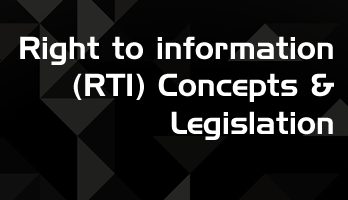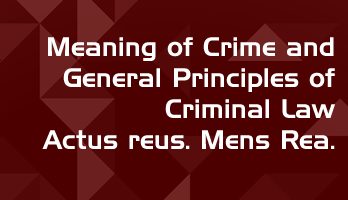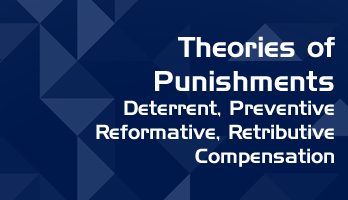Free Full Course Available on LawMint's YouTube Channel
How to Land Your Dream LLB Internship in a Top Law Firm
- Part 1 - Introduction
- Part 2 - Internship Planning
- Part 3 - Internship Research
- Part 4 - Building Your Profile
- Part 5 - The Email
- Part 6 - The Resume
- Part 7 - The Cover Letter
- Part 8 - The Interview
- Part 9 - Self Development
Practical and comprehensive course, with real examples and step-by-step analysis of the complete internship application process. Check out LawMint's YouTube channel now!
Concept & Meaning of Norms
Social ‘Norms’ are the beliefs of society about how members should behave in a given context. Sociologists describe ‘Norms’ as informal understandings that govern society’s behaviour.
In simple terms, a ‘Norm’ signifies a standard of behaviour to be followed by the society. These standards are considered to be necessary to maintain source order. There are a number of ‘Norms’ creating institutions. Some of them are: religion, ethical standards, customs and usages and law.
In ancient times, religion has played the most significant role in regulating society. Religion and Law were indistinguishable. Later, some other institutions came into existence to set ‘Norms’.
All societies impose social control on their citizens to some degree. They monitor and regulate behaviour formally and informally.
- In large-scale societies, the most visible mechanisms are laws, courts, and police. However, Law is only one aspect of social control and is usually the least effective one.
- Small-scale societies maintain social control without the complex legal institutions with which we are familiar. However, this does not mean that they are without laws.
Key to understand a society’s system of social control is understanding the social norms upon which it is based. These are the commonly held conceptions of appropriate and expected behaviour in a society.
‘Norms’ can and do change over time. In tradition-bound societies, ‘Norms’ generally change very slowly.
In large, multi-ethnic societies, ‘Norms’ change rapidly. Often a society’s ‘Norms’ change but the laws relating to them have a long delay in catching up.
Norms & Social Control
The most effective form of social control is not laws, police, and jails. Rather, it is the realization or acceptance of the moral codes by the members of society.
‘Norms’ are the standards which regulate human activities in the society. They originate mainly from religion, customs and usages, moral standards and public opinion.
Law is one of such source. In modern society, law plays the most significant role in regulating human interactions with one another.
Law covers all the major activities of human beings. However, majority of them are based on morals, public opinions etc.
‘Norms’ play a crucial role in the maintenance of social order. In every sphere of life we find some standards to regulate our behaviour.
For example, there are moral norm or standards to regulate the interactions between individuals such as not to tell a lie, help one another in case of need etc. Similarly, there are Social Norms prevalent in various societies with regard to marriage, adoption etc. On the same lines, there are practices which act as ‘Norms’ to be followed in particular trade or business. Law also creates ‘Norms’.
In modern times, the role of Law in norm-creation is increasing day by day. However, you will notice that the majority of Legal Norms are based on the practices or standards followed in various fields in the society such as social, moral, trade, profession and business etc.
It has been seen that Legal Norms which are supported by the above, are followed more often than the Norms which are against them.
However, sometimes law has to intervene into the in moral social practices prevalent in the society and pass laws to curb these practices and create new norms. Laws to curb the evil of Dowry, Untouchability, Sati System are such examples.
Questions
Identify if the statements below are correct or incorrect.
The above statement is true.
Law also creates Norms.
The above statement is true.
In modern times the role of Law in creating ‘Norms’ is increasing day by day.
The above statement is true.
Define ‘Norm’.
In simple terms, a ‘Norm’ signifies a standard of behaviour to be followed by the society.
Two examples of ‘Norms’ of social behaviour are:
(i) Norms related to marriage; and
(ii) Norms related to inheritance
Free Full Course Available on LawMint's YouTube Channel
How to Land Your Dream LLB Internship in a Top Law Firm
- Part 1 - Introduction
- Part 2 - Internship Planning
- Part 3 - Internship Research
- Part 4 - Building Your Profile
- Part 5 - The Email
- Part 6 - The Resume
- Part 7 - The Cover Letter
- Part 8 - The Interview
- Part 9 - Self Development
Practical and comprehensive course, with real examples and step-by-step analysis of the complete internship application process. Check out LawMint's YouTube channel now!
Acknowledgement : This article is adapted from Swayam-NIOS course material.












